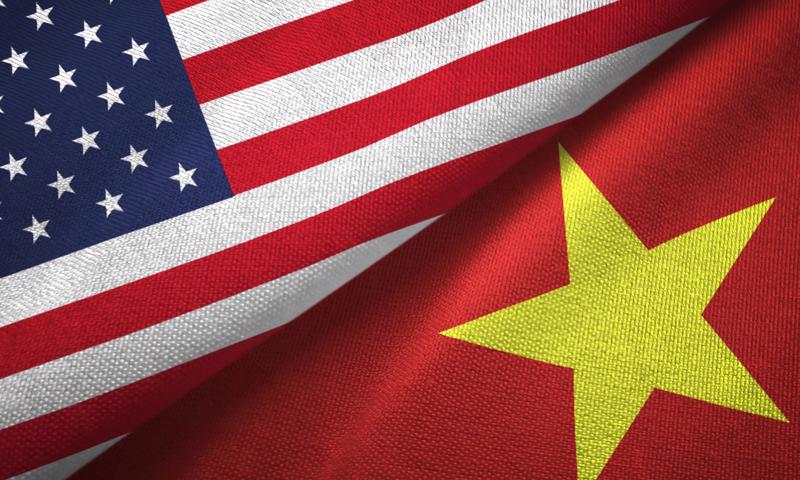US Considers Vietnam's Market Economy Status Amid Trade Tensions
Commerce Department to Decide Fate of Vietnamese Imports Tariffs as Tensions Rise

In a pivotal move that could reshape trade dynamics between the United States and Vietnam, the US Department of Commerce is set to deliberate on whether to grant Vietnam the coveted status of a "market economy."
This hearing, slated for May 8 but will continue for the next couple of months, carries significant implications for both nations, with the potential to impact trade relations and economic strategies in the Asia-Pacific region.
The deliberation comes against a backdrop of mounting tensions and competing interests. While proponents argue that recognizing Vietnam as a market economy would foster stronger bilateral ties and stimulate trade, opponents, including US steelmakers and shrimp producers, voice concerns over potential job losses and unfair competition.
Advocates for the upgrade, such as the US-ASEAN Business Council and various retailers, contend that Vietnam has already fulfilled crucial criteria for market economy status, including currency convertibility.
They emphasize the burgeoning investment landscape in Vietnam and assert that the current designation stifles its economic potential.
On the opposing front, US steelmakers and the Southern Shrimp Alliance express apprehensions regarding the ramifications of reduced tariffs on Vietnamese imports.
They highlight issues such as land ownership restrictions and labor laws, fearing adverse effects on domestic industries and employment.
The Commerce Department's decision hinges on a set of stringent criteria, encompassing factors like currency convertibility, wage determination mechanisms, and government intervention in economic activities.
If Vietnam secures market economy status, it could lead to a significant reduction in anti-dumping duties on its exports to the US, enhancing its competitiveness in the global market.
On broader geopolitical dynamics, the deliberation assumes added significance. As the US seeks to bolster its alliances in the Asia-Pacific region as a counterbalance to China's influence, Vietnam emerges as a key player.
Last year's elevation of bilateral ties to a "comprehensive strategic partnership" underscores the mutual strategic interests of both nations.
Trade Landscape
The US-Vietnam trade relationship has witnessed exponential growth in recent decades, with trade turnover skyrocketing nearly 300 times since the establishment of diplomatic relations.
The US stands as Vietnam's largest export market, with trade volumes reaching nearly USD 111 billion by the end of 2023. However, the ongoing deliberations over market economy status add a layer of complexity to this robust economic partnership.
As the Commerce Department convenes to address the contentious issue of Vietnam's market economy status, the outcome carries far-reaching implications for trade dynamics, economic partnerships, and geopolitical alignments.
Given the divergent interests and rising trade tensions, the decision underscores the intricate interplay between economic policy and strategic imperatives in shaping the global economic landscape.







